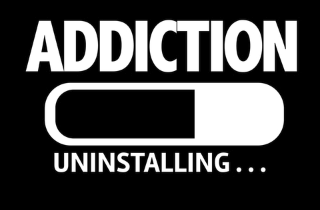Ask your relative what you can do to be most helpful of his/her sobriety. Family participation in treatment is linked to higher success rates. Using drugs or alcohol in rehabilitation goes versus the guidelines of treatment programs and can comprise the sobriety of other clients. While each program varies in how it handles regressions in rehabilitation, many programs have effects, which can consist of: Loss of https://goo.gl/maps/agdrCD7Qz3VKdUFx9 advantages, such as weekend passes and access to electronic devices.
Termination from the program. Many rehabs will release or terminate clients after 2 or more regressions. Each program has various guidelines for electronic devices. Some rehabilitations allow phones, computers and other electronic gadgets throughout a client's whole stay. Nevertheless, other programs forbid these items or just allow them after you have actually been in the program and remained sober for a particular duration of time (how to start a drug rehab program).
You can not force a person to go to rehab. But if you are concerned about an enjoyed one's drug or alcohol usage, you can assist them consider the advantages of treatment. One approach to getting loved ones into treatment is Community Reinforcement and Household Training (CRAFT).4 In several research trials, CRAFT demonstrated effectiveness in getting a household member to dedicate to treatment.
A qualified psychologist or therapist can carry out CRAFT. Therapists trained in CRAFT can also work with families without the addicted member of the family present if that person is not prepared or going to participate. Leaving rehab early without finishing the program is not suggested. This is often called leaving "against medical suggestions" or "AMA." When you leave rehab prematurely, your danger of relapse increases.
The Main Principles Of Episode Of 21 Jump Street When Johnny Depp Was In Drug Rehab?
Meyers, R. J., Smith, J. E., & Lash, D. N. (2002 ). The Community Reinforcement Method. Recent Advancements in Alcohol addiction (pp. 183-195). Springer, United States. Center for Drug Abuse Treatment. (2004 ). Are You in Healing from Alcohol or Drug Problems? Know Your Rights. Center for Compound Abuse Treatment. (2015 ). Cleansing and Drug Abuse Treatment.
45. HHS Publication No. (SMA) 15-4131. Rockville, MD: Compound Abuse and Mental Health Solutions Administration. Meyers, R. J., Smith, J. E., & Lash, D. N. (2005 ). A Program for Engaging Treatment-refusing Substance Abusers into Treatment: CRAFT. International Journal of Behavioral Assessment and Treatment, 1( 2 ), 90100. You are never ever too old to improve your health and quality of life! You are never too old to improve your health and quality of life!.
Drug and alcohol rehabilitation, or drug rehab treatment, is the starting point for significant and lasting recovery from dependency to substances or addicting habits. Substance abuse is a complicated condition that affects people physically, mentally, socially, biologically and spiritually. As such, treatment of such a complex, comprehensive condition needs to be equally all-inclusive.
Holistic, comprehensive treatment is the underlying basis for the current method to treating compound dependency, known as the "biopsychosocial" method - what percent of drug addicts relapse after rehab. This involves attending to the entire individual to ensure that all of the underlying causes and impacts of the addiction are correctly looked after and fixed. This gives individuals the tools they need for a full return to a delighted, healthy, substance-free life.
The 20-Second Trick For How To Pay For Drug Rehab
Actually, healing from dependency is a long-lasting commitment that needs ongoing attention and care. Even individuals with years of successful healing should stay mindful of their potential for regression, and they need to utilize the tools they discovered in treatment to prevent it. The word "rehab" likewise implies that somebody is being fixed after misbehaving, which is consistent with society's stigma about addiction.
So, what is drug rehab? Drug dependency rehab or treatment is the procedure where people with addictions: Eliminate their body from the compound and get rid of the body's need for the drug Wash out the drugs and their hazardous metabolites from their body Recover from the physical destruction of addiction Move from the extreme unfavorable psychology of active addiction to the positive psychology of recovery Recover typical, healthy social practices Discover to handle life and its stress factors without using compounds or behaviors to cope Pertain to understand that healing is a lifelong commitment to abstinence End up being prepared to handle the healing activities that are necessary to preserve lifelong recovery The drug rehab procedure occurs in a few stages.
It is essential that the steps to drug rehab be effectively dealt with throughout the drug rehabilitation process. There are 4 phases of addiction recovery: Addiction evaluation is a specifically vital part of the rehabilitation procedure. Individuals with compound addictions are extremely deceptive. This is part of the underlying psychology of addiction, and it strengthened by fears of arrest for possession and judgment from friends and family.
The specific requirements to identify which compounds were utilized and the level of their substance use. Healthcare assessments at The Recovery Town are performed over the phone by a designated consumption coordinator and must only take about 15-30 minutes, depending on current substance use and case history. More than half of individuals with compound dependencies have an underlying mental health condition.
How To Get Drug Rehab Without Insurance - An Overview
As such, it is important to determine any co-occurring mental health conditions and deal with these at the same time as the dependency. Otherwise, the chances of success in recovery are greatly reduced. To recuperate from substance use, individuals should first go through the procedure of ridding the body of the substances and their hazardous metabolites.
As the body clears the compounds, the undesirable experience of withdrawal takes place. The detox from alcohol use can be unsafe, even lethal. Individuals who routinely utilize alcohol needs to speak with a doctor or take part in a medically supervised detox program before stopping. For lots of people with dependencies, fear of withdrawal is a major barrier to leaving their dependency, which fear keeps them from even attempting.
By taking part in a medical detox program, people can make it through the experience securely and easily. The rehab process is the most significant part of an addiction treatment program. This is where the underlying causes of addiction are dealt with. For many individuals with compound addiction, their substance usage is no longer about getting high.
Drug rehabilitation is the process where the deep issues around the addiction are determined and addressed. This is achieved in a number of ways: Despite the length or strength of the rehab program, nobody goes out of rehabilitation "treated" of addiction. Rather, it can be stated that rehabilitation is the process of discovery, while what occurs later is healing.


An Unbiased View of How Does Outpatient Drug Rehab Work
However, this seldom works, and the large majority of individuals who attempt drinking or utilizing drugs once again will quickly wind up where they were previously. Research study data validates this, along with the fact that individuals are at an especially high risk of overdose throughout a regression. A common problem amongst rehab programs is that there is no sustainable plan for continuous healing support after discharge.
Ongoing participation in a recovery program, such as a $112-step program or SMART Healing, is vital for ongoing recovery. Rehab programs that introduce individuals to these aftercare programs are more reliable at ensuring involvement in continuous recovery activities after discharge. Sober living houses are a specifically effective method to aftercare when a person is released from rehabilitation.